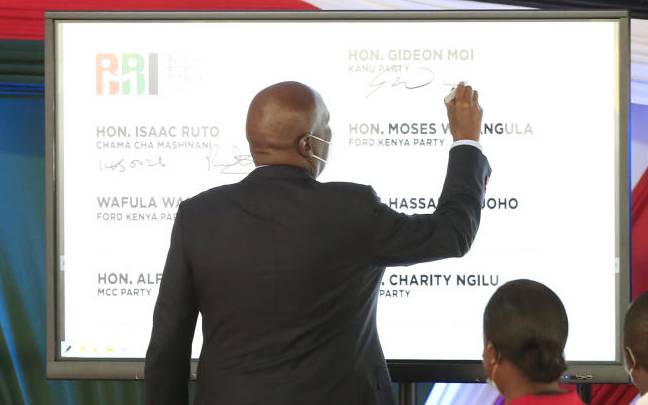×
The Standard e-Paper
Smart Minds Choose Us

Baringo Senator Gideon Moi appending his signature during the launch of the collection of signatures for the Building Bridges Initiative (BBI) at KICC in Nairobi on November 25, 2020. [Stafford Ondego, Standard]
Some contentious issues in the first draft of the Building Bridges Initiative (BBI) report unveiled last month have either been dropped or reviewed in a new document released yesterday.